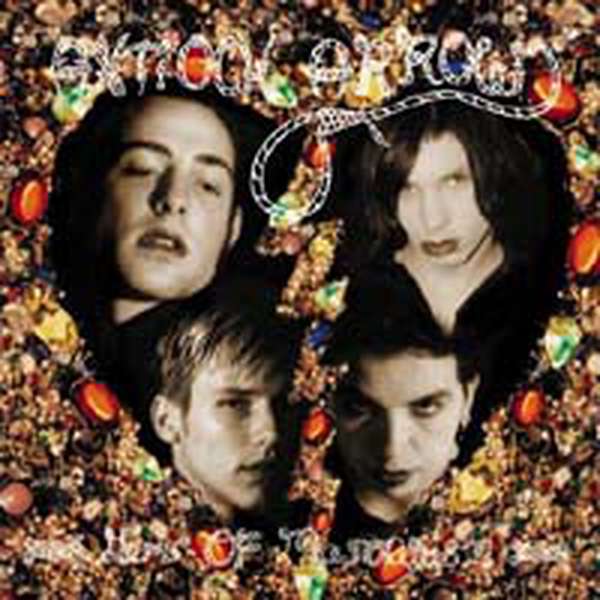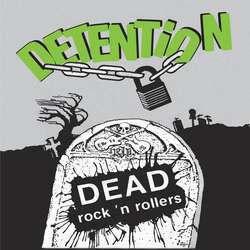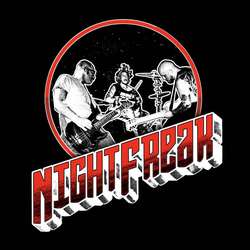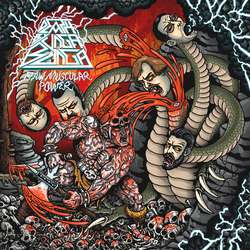Weird, artsy, dark hardcore was nothing new to San Diego in 1994 when Antioch Arrow released their seminal masterwork, Gems of Masochism. The presses had been putting out consistently darker and stranger albums each passing year, mostly thanks to upstarts Gravity Records. Gravity had bands that were few and far between, but things were on the upswing, as Angel Hair's spastic squeal and roar methods had kicked up the insanity a notch on top of Clikitat Ikatowi's chaos theory rock, which had in turn cemented the foundation that forefathers Heroin had laid down. The intensely personal lyrical matter and destructive musical work crafted earlier in the decade had transformed things around town in the time that it took Antioch Arrow to unleash their trademark record, making driving, passionate, artistic electric guitar rock a viable commodity in the fledgling San Diego scene.
Which makes it strange that everything that was to be expected about Antioch Arrow is nowhere to be found on this album. Originally limited to a small run, Gems of Masochism was re-released in late 2003 by the fantastic Three One G record label, spearheaded by Mr. Justin Pearson, well-established in the music scene in San Diego due to his label, as well as the whole legion of fantastic bands he's been in (for those of you playing at home: the Locust, Swing Kids, the Crimson Curse, Some Girls, Holy Molar). Upon listening, it's easy to see why this record went out of print, because there's absolutely nothing that you're expecting found on it. Refer to that previous paragraph, the writing about "intensely personal lyrical matter and destructive musical work" and "electric guitar rock," and then note that these things are few and far between on this record. If there's one thing the whole Jawbreaker fiasco taught us, it's that scene kids don't like it when they aren't given the kind of music that they're expecting.
It's to Antioch Arrow's credit that they revealed themselves to be far more avant-garde on their last record than their two previous records, In Love With Jetts and The Lady is a Cat, would allow people to assume. Certainly the band was artistic and more than a little bizarre before this album, but on this last long-player, the band revealed themselves to be more than just another quirky hardcore band. The album is so dark it practically seeps out a scene from some long-forgotten film noir through the speakers, complete with thick fog, moonlight, and the smell of cigarette smoke.
Whispered and breathed vocals with nary a scream to be found are shoved right up front, blurts of organs and pianos pop out of nowhere, shards of guitar and bass are distorted and shoved down as far in the mix as possible, and drums seem to come from all sides. Yes, it's pretentious as all hell, but it's invigorating and subtly thrilling at the same time. The music seems impossible, as someone sings to you about jack-o-lanterns, nighttime, and mascara, thumping drums pound away, and a whole calvacade of instruments bounce around in the mix. Unlike most of their contemporaries, Antioch Arrow never seem to be aiming their attack at the listener, rather, they instead seem to be focusing it inward, crafting their sound relentlessly.
Many inspiration points have been suspected, such as Angel Hair's Insect Mortality for inspiring the craziness, Heroin's entire catalog of extremes, as well as older records by bands like Bauhaus and the Birthday Party, comparisons which become glaringly obvious upon listening. While not sounding like the album exactly, the closest contemporary the record has would be Joy Division's epic final album Closer, because it conveys the same sense of not-quite dread, not-quite fear, just the general uneasiness that's easy to theorize and conceptualize, but much, much harder to pull off.
Realizing that everything present on this record is done only for effect doesn't cease making it relentlessly intriguing. Even on the strangest moments, like the muted-string strumming and tom-tom drum intro of "You Gotta Love the Lights," or the chant of "Let's fuck with the night because..." which erupts into saxophone squeals on "David," the band remains tight and focused. While not quite a masterpiece in the traditional sense, Antioch Arrow can be credited for taking artistic, dark hardcore to its logical extreme, making all bands that would come after them either pale in comparison or have to start dissecting their final record to even know where to begin creating something even stranger. Somehow, one gets the feeling that taking the sound of San Diego at the time as far as it could go was the main goal of the band on this album. Mission accomplished, boys.



